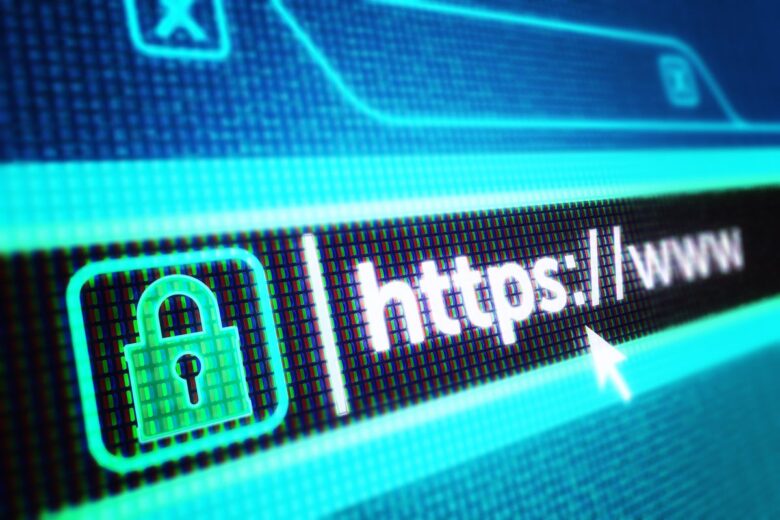The internet has become a critical part of our lives. From shopping to socializing and from work to entertainment, it seems like there’s nothing you can’t do online.
However, with great convenience comes great responsibility. Cyber threats are on the rise, making it essential to prioritize your online safety.
In this blog, we’ll discuss various aspects of staying secure on the web and provide you with valuable insights to navigate the digital world with peace of mind.
Contents
Understanding the Importance of Online Safety
It’s crucial to grasp why online safety is so important. The internet is a vast and often unpredictable landscape. It’s not just a place for connecting with friends or watching funny cat videos; it’s also teeming with malicious people looking to exploit vulnerabilities for their gain.
Imagine your online presence as a digital extension of yourself. It contains a wealth of personal information, ranging from your contact details and financial records to your browsing habits and social interactions. Ensuring your and your loved ones’ online safety is akin to safeguarding your physical well-being. It’s about protecting yourself from cybercriminals, identity theft, and the potential consequences of online mishaps.
The Role of Secure Web Browsers

Source: computerworld.com
When it comes to online safety, your web browser is your first line of defense. It’s the gateway through which you access the internet, making it a prime target for cyberattacks. Secure web browsers play a pivotal role in protecting your online presence.
They employ advanced algorithms and databases to identify and block malicious websites. They can warn you when you’re about to visit a potentially harmful site, helping you steer clear of trouble. Developers of secure web browsers are constantly working to patch vulnerabilities and improve security. Regular updates ensure that you’re protected against the latest threats.
Many secure browsers offer built-in privacy features like tracking prevention and incognito mode. These features help you maintain your anonymity and protect your sensitive data from prying eyes.
These browsers often support a variety of add-ons and extensions that can enhance your online security. These tools can include ad blockers, password managers, and VPNs (Virtual Private Networks). Additionally, they ensure that your online transactions, such as online shopping or banking, are secure by implementing encryption protocols like HTTPS. The most secure browser will incorporate most of these features to help you stay safe online.
Choosing a Secure Web Browser
Now that we’ve established the importance of a secure web browser, how do you go about choosing the right one for you? Choosing the right browser ultimately depends on your priorities.
Some prioritize speed, while others emphasize privacy and security. It’s essential to find a balance that suits your needs.
Read through the features of the most popular browsers and search for some alternatives like the Wave browser. Many of these newer browsers offer the privacy benefits you need the most to stay safe online.
Tips for Using Secure Web Browsers Effectively

Source: venturebeat.com
Once you’ve selected a secure web browser, you’ll want to use it to its full potential. Enable automatic updates to ensure your browser is always equipped with the latest security patches.
Cybercriminals are constantly looking for vulnerabilities to exploit, so staying up to date is crucial. Next, you’ll want to create strong and unique passwords for your online accounts. Many secure browsers offer built-in password managers to help you generate and store complex passwords securely.
Whenever possible, enable 2FA for your online accounts. This adds an extra layer of security by requiring a second verification step, such as a one-time code sent to your phone. You also need to take advantage of your browser’s privacy settings.
Enable features like tracking prevention, pop-up blockers, and do-not-track options to protect your online privacy. Explore the browser’s extension store for security add-ons. Tools like ad blockers and VPNs can provide an additional layer of protection.
Another great habit is to periodically clear your browser’s cookies and cache to remove stored data that could potentially be exploited by trackers. You’ll also need to stay informed about common online threats and phishing tactics. Be cautious when clicking on unfamiliar links or downloading files from untrusted sources.
Additional Online Safety Measures

Source: cliqz.com
In today’s increasingly interconnected world, online safety measures are crucial for protecting your digital life. Beyond selecting a secure web browser and embracing the characteristics of a secure online experience, consider these additional safety measures to enhance your overall cybersecurity:
Antivirus Software: Employ reputable antivirus software that can detect and remove malware, providing an added layer of protection for your devices. Regularly update your antivirus software to ensure it can combat the latest threats effectively.
Email Vigilance: Phishing attacks often arrive via email, disguised as seemingly harmless messages. Exercise caution when opening email attachments or clicking on links, especially if the sender is unknown or the message appears suspicious. Verify the legitimacy of any unexpected emails before taking any action.
Regular Software Updates: Keep your operating system, applications, and plugins up-to-date. Software updates often contain security patches that address vulnerabilities identified by developers or security researchers. Neglecting updates can leave your system exposed to known threats.
User Education: Stay informed about emerging threats and share your knowledge with friends and family. Encourage safe online practices among your loved ones. Awareness is a powerful tool in the fight against cyber threats, and educating yourself and others can prevent costly and damaging security breaches.
Safe Password Practices: Create strong and unique passwords for your online accounts. Many secure browsers offer built-in password managers to help you generate and store complex passwords securely. Consider using a passphrase or a combination of letters, numbers, and symbols to strengthen your passwords.
Two-Factor Authentication (2FA): Whenever possible, enable 2FA for your online accounts. This adds an extra layer of security by requiring a second verification step, such as a one-time code sent to your phone or generated by an app. Even if someone gains access to your password, 2FA provides an additional barrier against unauthorized access.
Backup Your Data: Regularly backup your important files and data to an external source or a cloud-based service. In the unfortunate event of a ransomware attack or data loss, having secure backups ensures you can recover your essential information without capitulating to cybercriminal demands.
